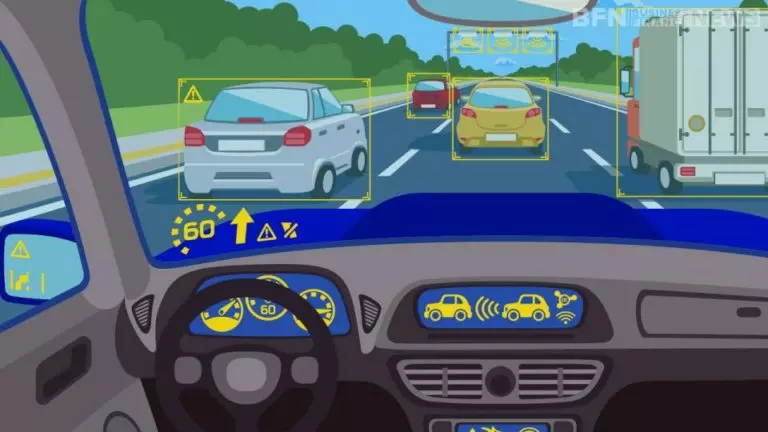Google Inc Enters Battery Arms Race
Google has jumped on the bandwagon of working on battery technology. BFN looks into the details.
Google Inc (NASDAQ:GOOGL) has entered the race for better battery technology through its research laboratory, Google X, to boost its expansion into the electronics divisions, WSJ reported.

A former Apple Inc. (NASDAQ:AAPL) battery adept, Dr. Ramesh Bhardwaj, headed a team that initiated a test on batteries, which were manufactured by other companies, for devices of Google in 2012. After a year, the group furthered their research in batteries that can aid the company in developing batteries, as per the people close to the matter. However, a spokesperson of Google refused to comment on the matter or present Dr. Bhardwaj for a statement.
In recent years, the California-based tech giant has entered industries like transportation, robotics, healthcare, and communication, producing electronics devices that need proficient batteries. In 2013, CEO Larry Page stated to WSJ analysts that one of the major issues for smartphones is their battery life and there is a “real potential to invent new and better experiences.”
According to Dr. Bhardwaj, Google is working on a minimum of 20 battery projects. Furthermore, the tech giant’s latest invention is self-driving vehicles that operate on rechargeable batteries. The first model of Google Glass, an eyewear that can be connected with the internet, struggled after its official launch last year, due to short battery life. The company has been determined to enhance the battery life of other products like Google Glass.
Google enters the list of tech companies, like (NASDAQ:TSLA), International Business Machine Corp. (NYSE:IBM), and Apple, that are on a quest to create better batteries. These struggles have resulted in marginal improvements, which is so unlike tech companies that are familiar with consistent, dawdling developments in semiconductors efficiency.
Dr. Bhardwaj’s team is putting a lot of efforts upgrade existing thin-film, solid-state, and lithium-ion batteries for Google’s consumer electronics, including Google Glass and tech giant’s contact lenses used to measure blood glucose level, according to sources.
In February, Mr. Bhardwaj presented at a conference and he explained the uses of thin-film, solid-state batteries in cellphones and other electronic devices.
For wearable gadgets such as Google Glass, the technology could aid in running energy-intensive features. For the contact lenses, the batteries are safer since they do not use the flammable-electrolyte liquid.
Other groups at Google X are working with a battery designer and manufacturer, AllCell Technologies LLC, on more powerful batteries for some electronics projects, such as Project Loon.
We have studied investments from Netflix, new contracts signed by Orbital, SolarCity earnings report and their negotiation with Tesla for the acquisition of the Powerball battery, the problems that ARCH coal is facing, how IBM is investing in the treatment of the Zika virus, how Moon Express is planning to mine minerals in the moon, and how Citigroup is engaged in commodity trading.
We follow a lot Tesla here, from the fundamental analysis and from the technical as well. See how the Chevy Bolt and the Tesla 3 are dimensioning the evolution of the price of this shares and how this could affect technical analysis, and how the Autopilot functionality is working: the evolution of the Autopilot software has always influenced the prices of their stocks. Tesla Model S 70D is considered the “car of the century”, not by us of course, but we are interested to see how these awards affect the evolution of the stocks. Tesla and other companies signed an agreement so that autobraking became the standard in 2022. A trend in the automobile industry started by Mercedes Benz and Tesla, is having a platform to sell pre-owned vehicles: now General Motors is joining that trend as well.
We have studies how the stock slump of GoPro should be considered not only from the view of technical analysis. Also, check the functionality from Facebook, the “login approval” and if it really protects users or other interests. The reports from Volkswagen about their very low injury claims, how now other companies in China can use the name “IPhone” apart from Apple. We continue in China to learn about the Marketplace Alliance Program from Alibaba, and the joint investment in CloudFlare from Google Inc, Microsoft Corporation, Qualcomm, and Baidu.
About Google, a company we follow a lot here, I want to see how they have entered in the batteries market and how this will affect their current projects and the evolution of the stocks. Interesting are the Chrome updates to decrease CPU usage.
We analyze the effects of the position of Disney in the dispute between Netflix and Time Warner, so we can understand how Disney is shifting its business after selling its stake in Fusion.
We discuss briefly how Oracle adressed the changes in the cloud-computing industry, why Morgan Stanley is optimistic after the pandemic and the Brexit, the divestment in Dell regarding Perot Systems, and the effects of the huge minimum wage rise in Costco. Chipotle is cutting the executive compensation, the issues that BP is facing, what happens with Macy´s earnings and how fundamental analysis can be done in those cases. About Apple, we analyze the effect of the launch of this product Apple Watch where sales performed very irregularly.

I am David, economist, originally from Britain, and studied in Germany and Canada. I am now living in the United States. I have a house in Ontario, but I actually never go. I wrote some books about sovereign debt, and mortgage loans. I am currently retired and dedicate most of my time to fishing. There were many topics in personal finances that have currently changed and other that I have never published before. So now in Business Finance, I found the opportunity to do so. Please let me know in the comments section which are your thoughts. Thank you and have a happy reading.



